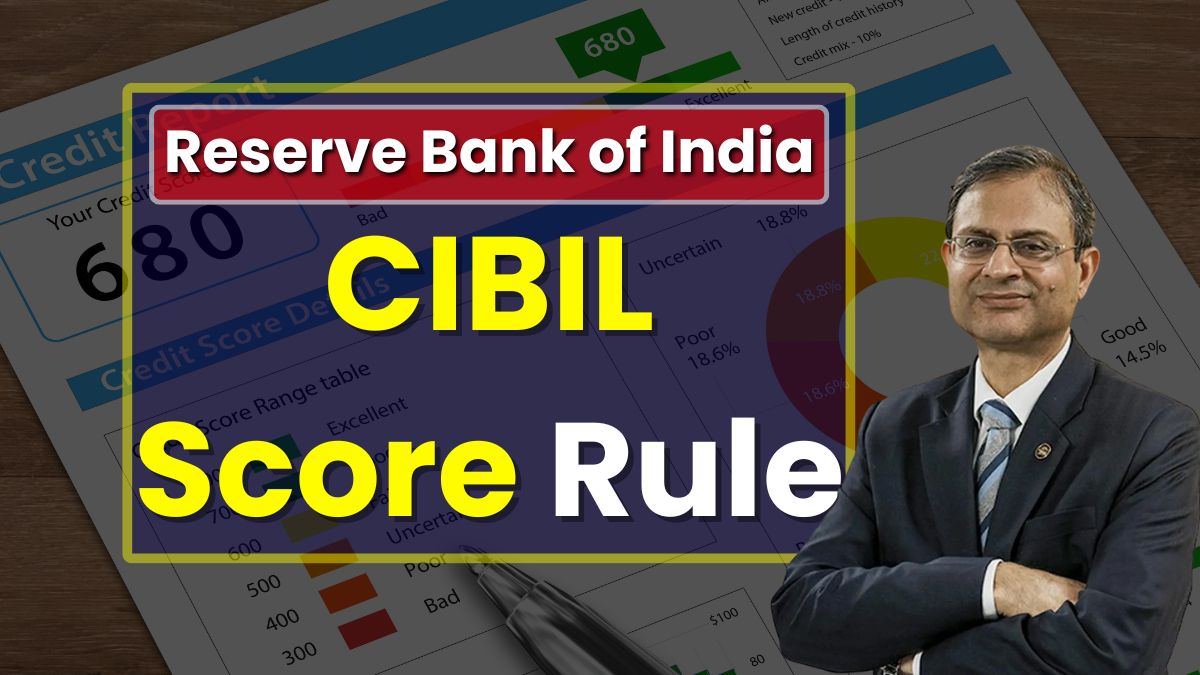New RBI CIBIL Score Rule: The Reserve Bank of India (RBI) has issued a new guideline that’s honestly a big relief for many of us. Starting January 1, 2025, all banks and financial institutions must update your credit information every 15 days. Earlier, this happened just once a month.
Think that’s a small change? It’s not. Here’s why…
Why This Rule Matters (Especially If You’ve Ever Been Denied a Loan)
Let’s say you paid off your credit card or cleared your personal loan. But when you applied for a home loan a week later—boom, rejection. Why?
Because your credit score hadn’t been updated yet.
That delay? It could have been up to 40 days long. That’s more than a month of waiting, stressing, and potentially missing out on important financial opportunities.
But now, thanks to this 15-day update rule:
- Your repayments show up faster
- Your credit score reflects real-time improvements
- Banks make lending decisions based on the most recent info
It’s like finally getting credit for the effort you’ve already put in.
What Does “15-Day Reporting” Really Mean?
Here’s the simple truth: from now on, every time you pay off something—like a credit card bill or a loan EMI—your lender has just 15 days to report that info to the credit bureau (like CIBIL).
What’s in it for you?
- On-time payments = faster credit score improvement
- Banks see updated scores = fewer rejections
- No more waiting 30–40 days for changes to reflect
And there’s more.
RBI is Cracking Down on “Evergreening” Too
Ever heard of evergreening?
That’s when banks give out new loans just to help people pay off old ones—without really assessing if they can afford it. It sounds helpful, but it actually hides financial stress and traps people in more debt.
Under the new rules, evergreening is now banned.
So now:
- Banks can’t mask risky lending anymore.
- You, the borrower, get a fairer evaluation based on actual repayment behaviour.
What’s a Good CIBIL Score in 2025?
Still unsure what a “good” score looks like? Here’s a quick cheat sheet:
| Credit Score | How It’s Viewed |
|---|---|
| 300–579 | Poor – Needs major repair |
| 580–669 | Fair – Could improve |
| 670–739 | Good – Decent chances |
| 740–799 | Very Good – Strong profile |
| 800–900 | Excellent – Top tier |
Aim for 700+ to unlock better interest rates and easier loan approvals.
Top Benefits of the New CIBIL Score Rule
Let’s sum up why this rule could be a total game-changer for you:
- Faster score updates – Helps you build credit quicker
- More accurate scores – Reduces the chance of loan rejection
- Better chances with lenders – They get real-time insights into your financial habits
- You’re in control – If there’s an error, you can act quickly and get it fixed
And most importantly, you get treated more fairly by the financial system.
What You Should Start Doing Right Now
Want to take advantage of these new rules? Here’s what you can do:
- Check your credit score regularly – Look for updates every 15 days now
- Always pay EMIs and credit card bills on time
- Dispute errors immediately – If something’s off, file a complaint with the credit bureau
- Avoid taking loans to repay other loans – It’s risky and no longer helpful under new rules
Even if your credit score isn’t perfect right now, don’t stress. These new rules make it easier than ever to turn things around.
FAQs
Q1. Will my credit score really update every 15 days now?
Yes. Banks and lenders must report your credit activity within 15 days. If they don’t, you can raise a concern with the credit bureau.
Q2. I paid off my loan, but my score didn’t change yet. What should I do?
Wait a couple of weeks, then check again. If it’s still not updated, contact your lender or the credit bureau.
Q3. What if I see wrong info on my credit report?
You can file a dispute directly with CIBIL or whichever credit bureau shows the error. Fixing mistakes is part of your financial power.
Q4. How often should I check my credit score?
At least once a month—but with these new rules, every 2–3 weeks is better. Stay on top of your financial game.
Q5. Is it safe to check my credit score online?
Absolutely. Use official sites like CIBIL or your bank’s app. Just avoid shady third-party sites.
Q6. Does a better score really mean lower interest rates?
Yes! A higher score can get you better loan deals, more approval chances, and even higher credit card limits.



